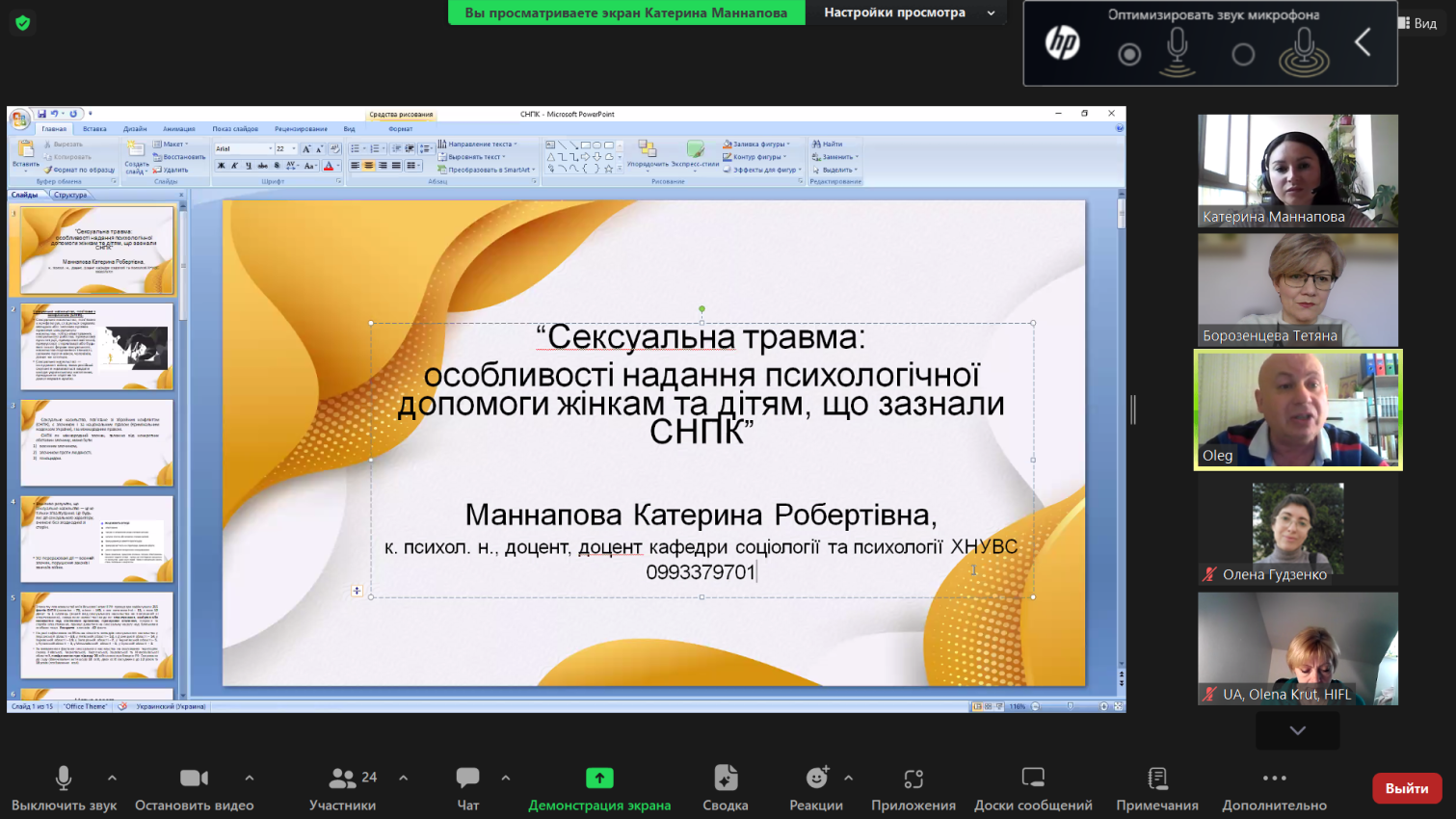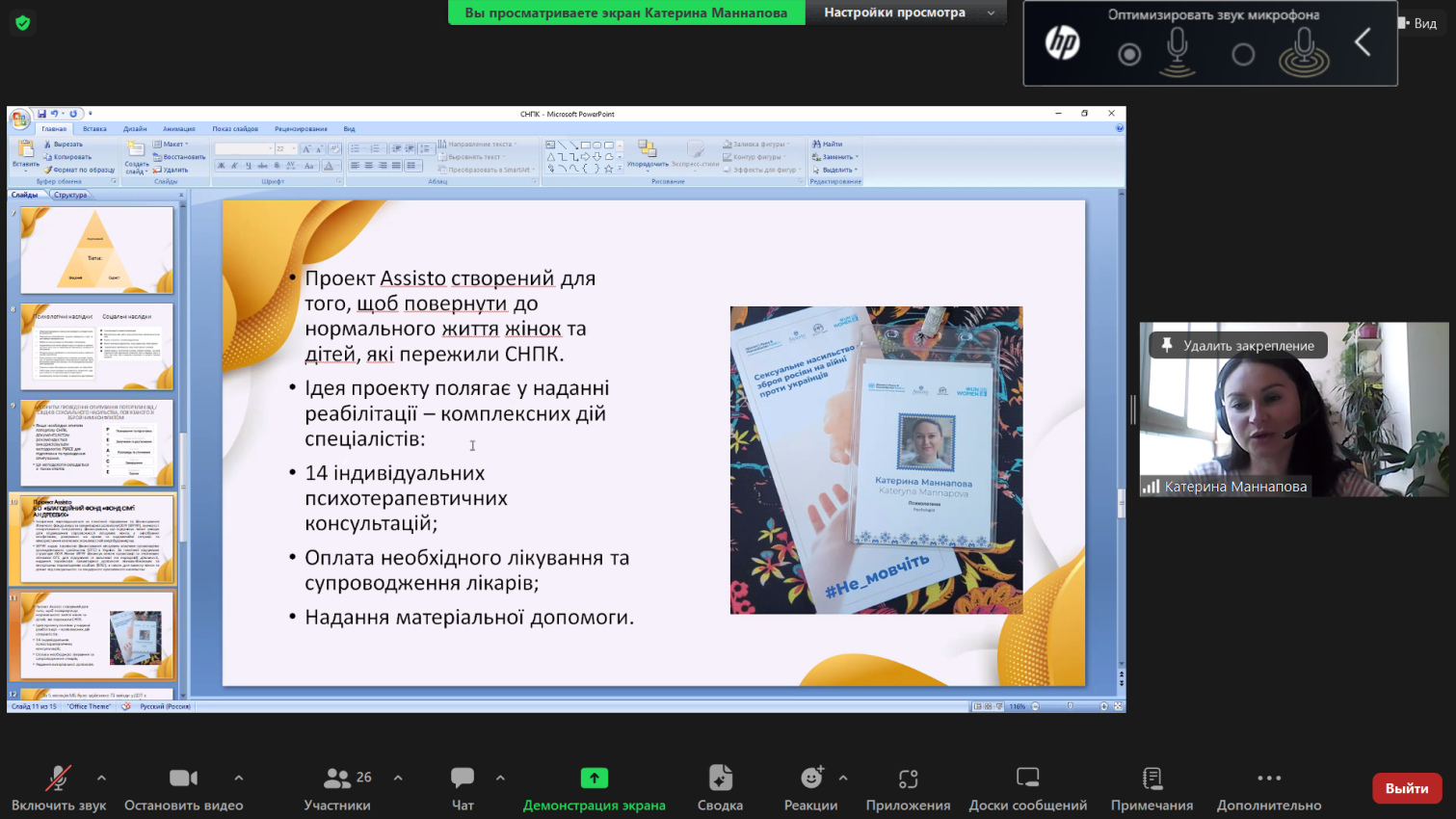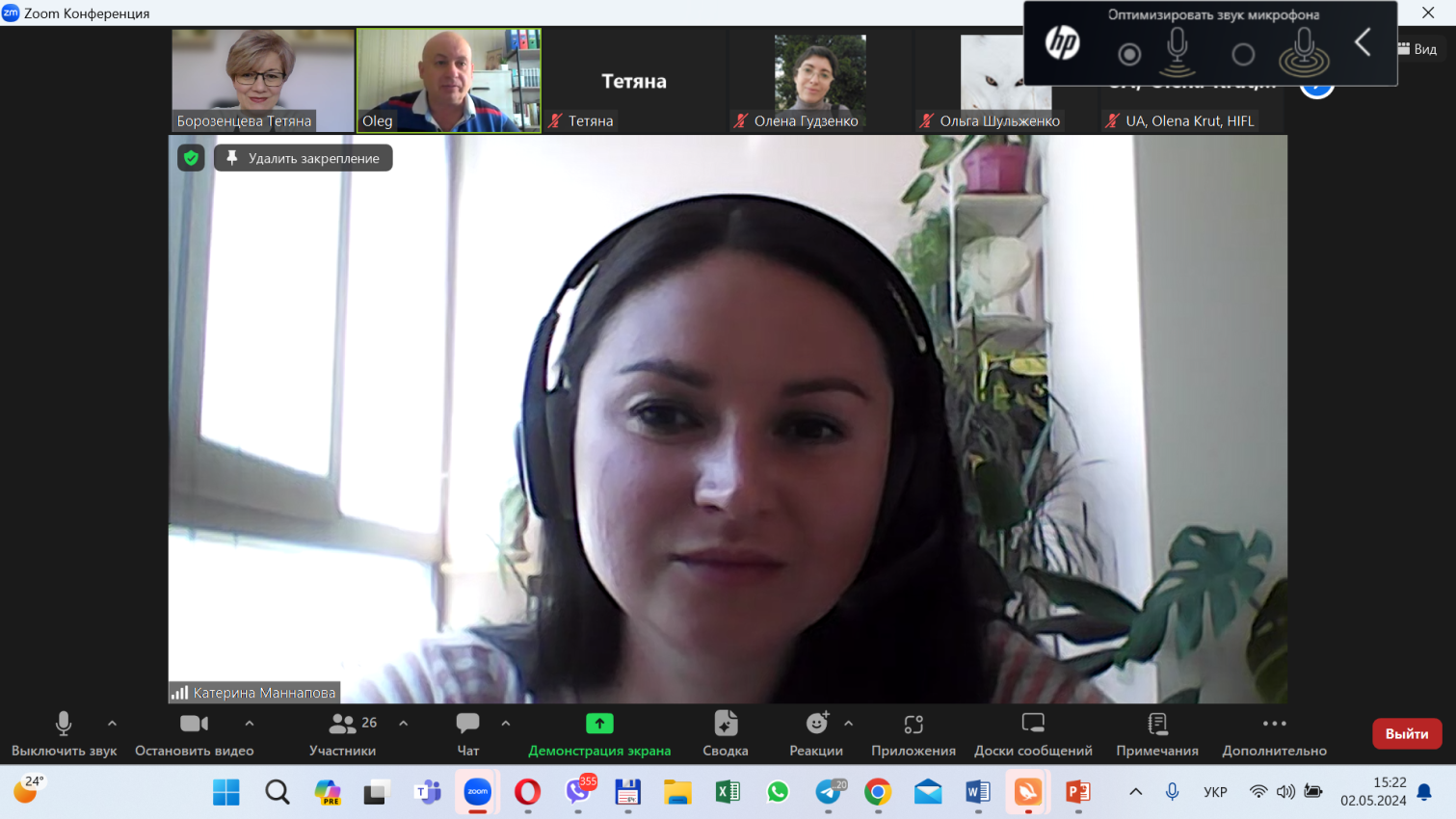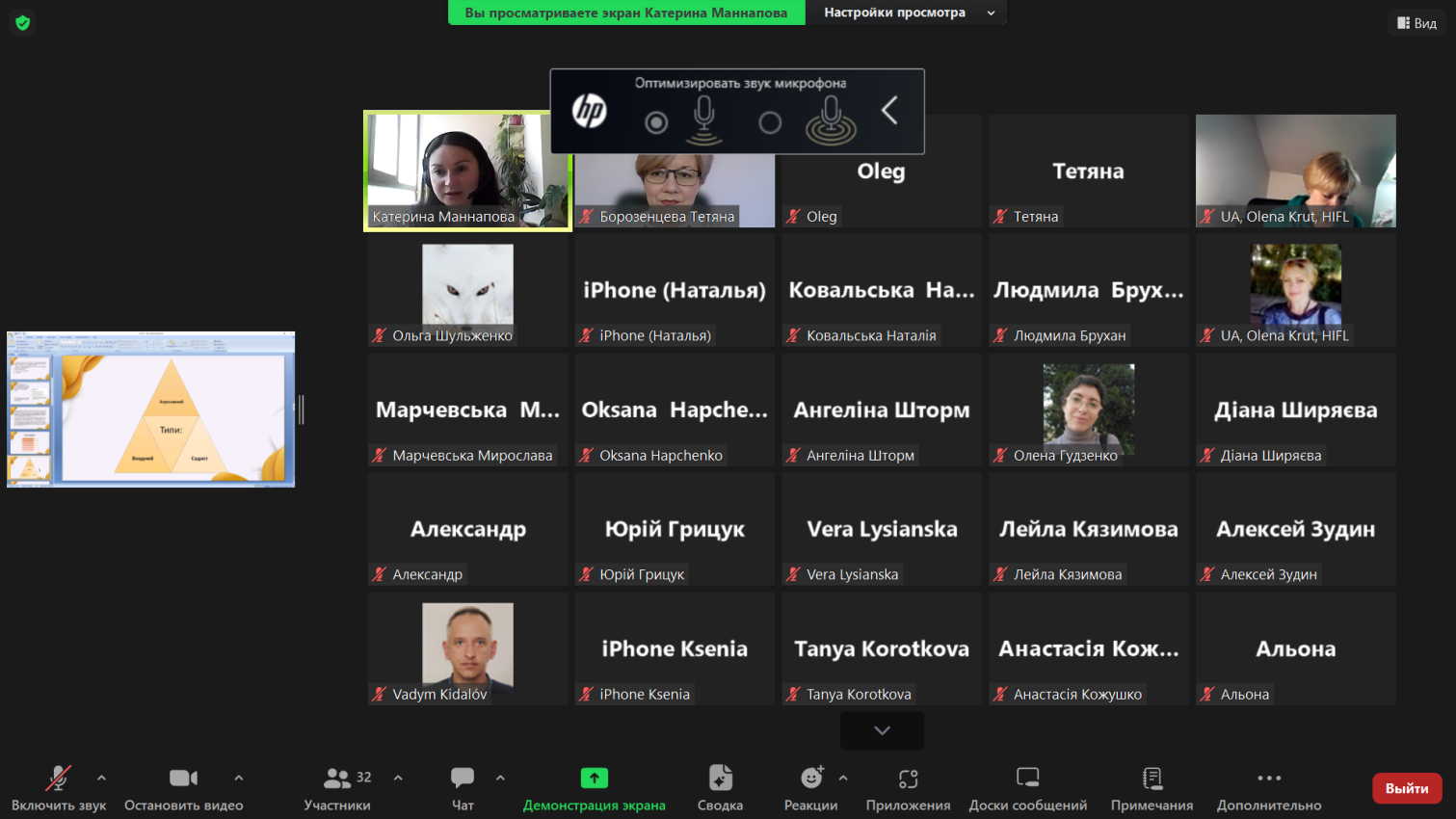On the initiative of the Center for Psychological Support of the Department of Psychology, Faculty of Social and Language Communication of the Horliv Institute of Foreign Languages, on 02.05.2024, an open lecture was held on the topic "Sexual trauma: peculiarities of providing psychological assistance to women and children who have experienced SNPK" (SNPK - sexual violence, pov' associated with military conflict).
The meeting was important from the point of view of in-depth study by students of psychological specialties of the content of the disciplines: "Modern technologies of rehabilitation psychology", "Sexology and psychology of sexuality", "Military psychology". And at the same time, the enlightening and educational aspects of the open lecture were significant and useful for all those seeking higher education at the GIIIM.
Kateryna Robertivna Mannapova, Associate Professor of the Department of Sociology and Psychology of the Kharkiv National University of Internal Affairs, Candidate of Psychological Sciences, Associate Professor has experience as a psychologist-psychotherapist on issues of sexual trauma. Namely, she worked with women victims of sexual violence, which in wartime can be accompanied by physical mutilation. The lecturer emphasized the importance of following the sequence of stages of rehabilitation assistance, which, to a certain extent, can be provided not only by specialist psychologists, but also by members of the victim's family:
- Work with the new "inner self" of a woman, which includes: integration of the acquired experience into a new map of one's own body; self-acceptance through state stabilization; working with emotions (aggression, shame, guilt); activation of own resources.
- Work with the social role of a woman (with the help of support groups) to form a new self-presentation of a woman in society through the assimilation of a new idea of herself, a new role in the family, in the close environment.
- Finding the meaning of the acquired experience and realizing one's own strength; finding new opportunities in activities: learning, mastering new skills, hobbies.
Rehabilitation will be successful if it is comprehensive, with the help of various specialists: psychologists, doctors (urologist, neurologist, physiotherapist, chiropractor), social workers.
We would like to thank Ms. Kateryna for the professional presentation of emotionally complex, but relevant and valuable practical material for future psychologists and teachers.






